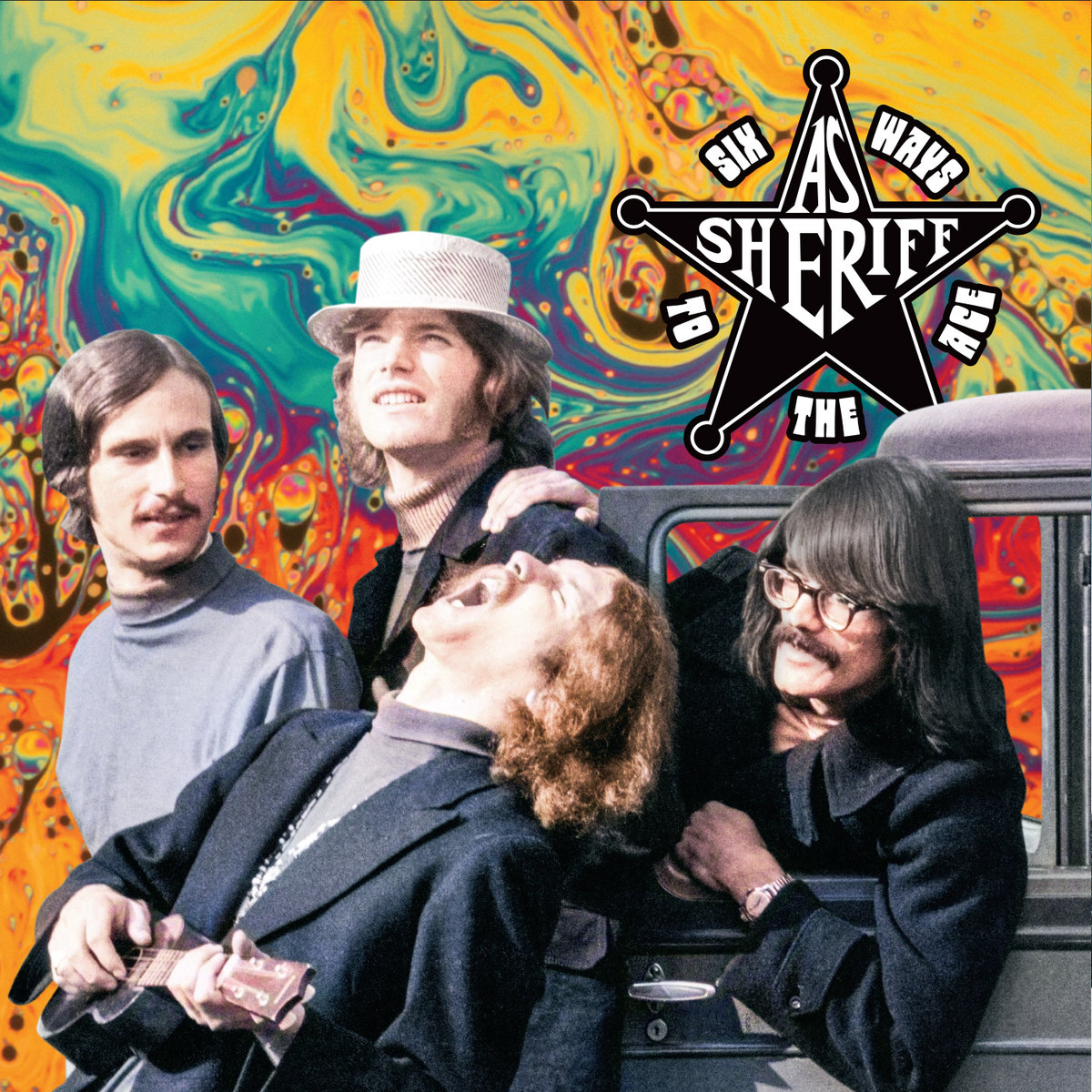As Sheriff | Interview | Sublime Document of Canada’s 60s Underground
As Sheriff was a Canadian psychedelic rock band formed in 1967 that brought the fuzz and smoke to Victoria and Vancouver’s underground scenes with their DIY attitude, guttural guitars, hypnotic harmonies, and anti-war covers.
Thanks to Supreme Echo we are able to hear the long lost recordings of one of the most notorious 60s bands from the area. The band featured future May Blitz bassist Reid Hudson on bass, lead vocals (1967-69), Andrew Godon on lead guitar (1967-72), “Big” Ed Simpson-Baikie on bass/guitar, lead vocals (1967-72), Denis Scherk on drums (1968-72) and “Little” Ed Wright on lead vocals, harmonica (1969-71). Additional members who were also part of the band were Peter Lower on drums (1967), Mark Metcalf on drums (1967), Harry Creech on drums (1967-68), Rod Evans on guitar (1970-71), and Barry Newman on guitar (1971-72) Aside from their only released 45 single, ‘Father’s Good Machine’ / ‘Six Ways To The Ace’ in 1970 on London Records, we are served with ten unreleased tracks from 1969–70.
Supreme Echo all meticulously remastered from analog reels. The reissue is one of the highlights from the counterculture era and captures the true spirit of 60s Canada’s underground.
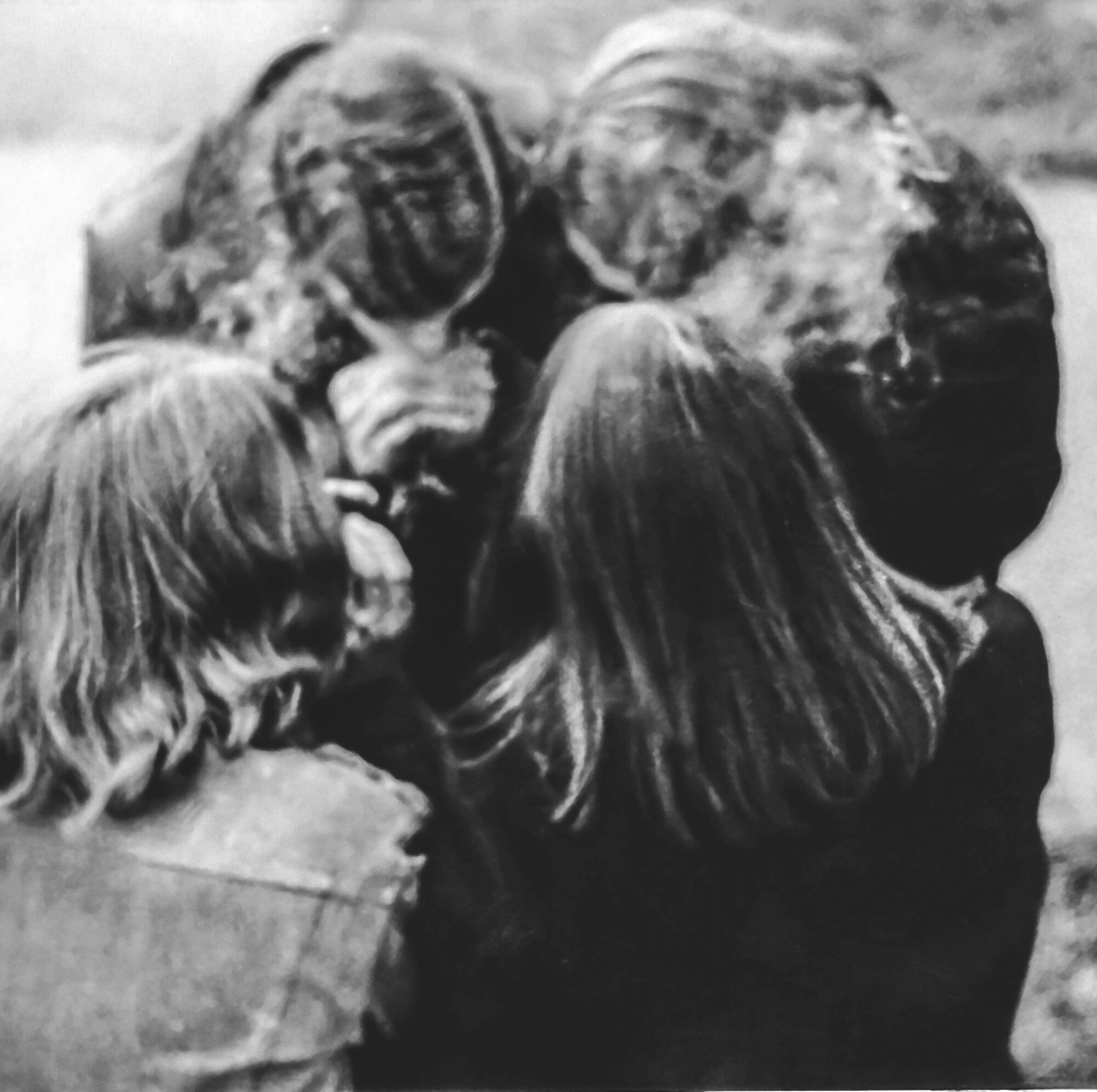
“A product of the collaborations of a draft dodger guitar player, a folksinger, a rock and roller and a drummer with a military background”
Jason Flower of the fantastic Supreme Echo label did a truly remarkable job gathering all the unreleased tracks and information into one tasty package. How do you feel hearing all the unreleased material again on vinyl? Hearing it myself, I think those grooves capture a very special time in your life, something that couldn’t be repeated. What’s your take on it and the whole counterculture that emerged back then?
Reid Hudson: Jason Flower surely did a great job of tracking down the tracks and shaping them into a record on shiny and groovy black vinyl. The tunes bring back a lot of great memories of the players I was playing with and life for me as a young man living on my own and doing what I wanted when I wanted to do it. I have been pleasantly surprised at how good some of these “lost” tracks sound 55 years later. I didn’t realize how tight the band was in those days, probably due to the herbal influence we were all under at the time. What you have with this collection of As Sheriff tunes is a product of the collaborations of a draft dodger guitar player, a folksinger, a rock and roller and a drummer with a military background. It was very exciting to be playing original music in little old Victoria BC Canada and being able to support ourselves doing it.
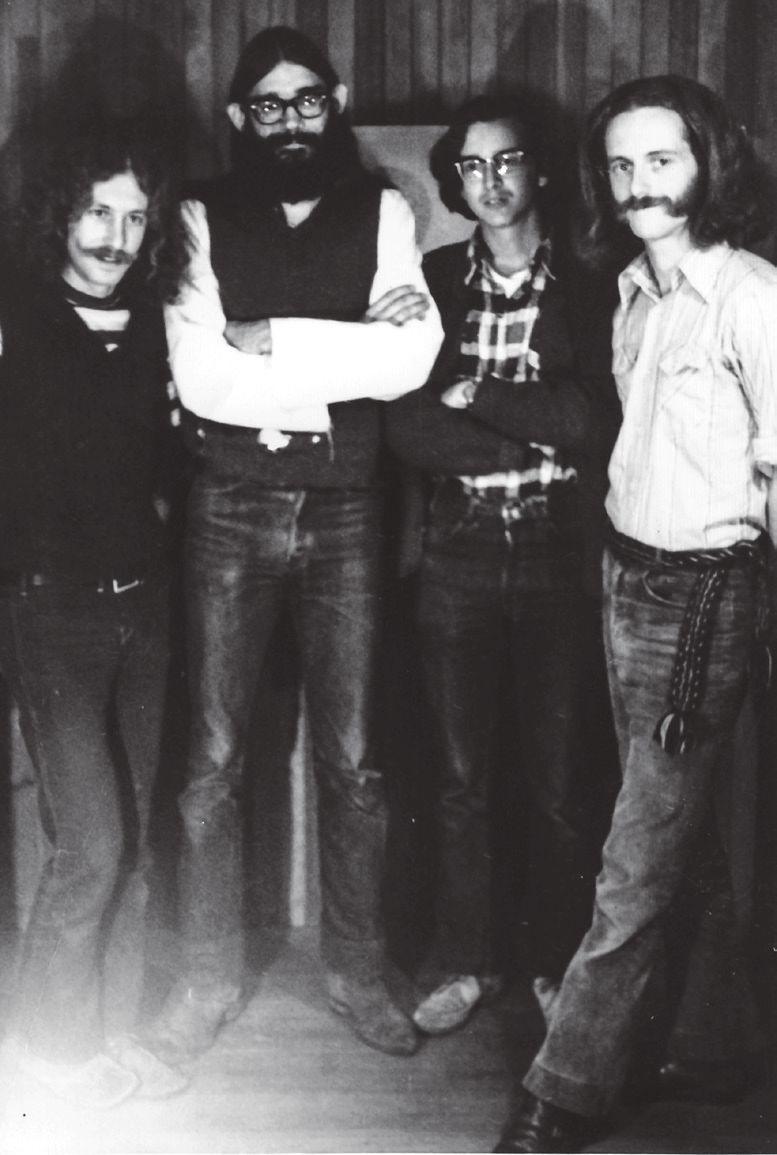
As a bassist, what are some of the most important players that influenced your own style and how did you employ that when it came to the music making process for As Sheriff?
Reid Hudson: I really didn’t focus on bass players to shape my style rather than the bass sounds of the many groups I enjoyed listening to at the time such as The McCoys, Blues Magoos, James Brown, Buffalo Springfield, Grateful Dead, Cream, Jimi Hendrix Experience, The Rolling Stones, The Beatles, Pink Floyd, John Mayall & the Bluesbreakers … and the list goes on. Bass players influencing my style somewhat were Jack Bruce, John Paul Jones and James Jamerson to name a few. A very special time for a mixing pot of different music and playing styles. It all came together in As Sheriff when someone brought a song they had written and we all put our individual musical stamps on the piece to get the sound and style that As Sheriff had. And I would add that we had more than one style.
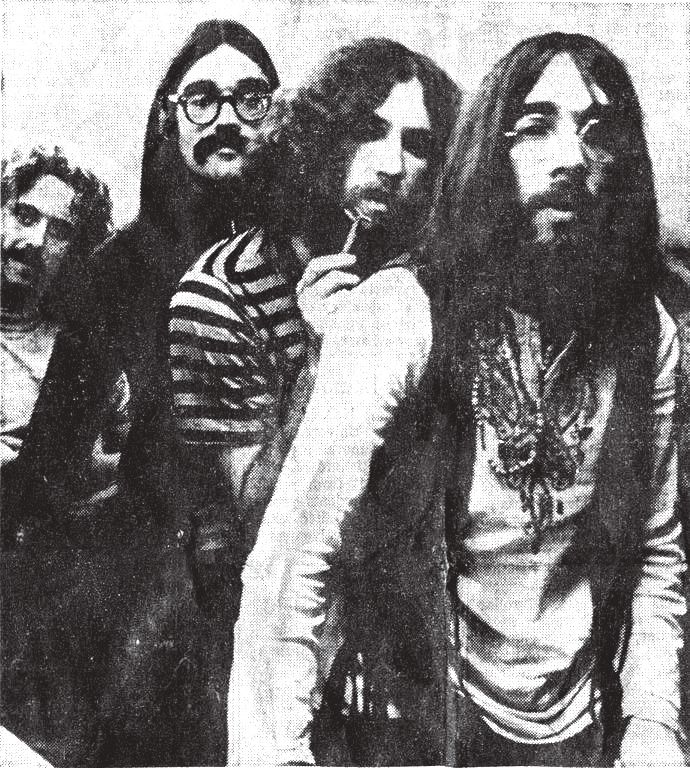
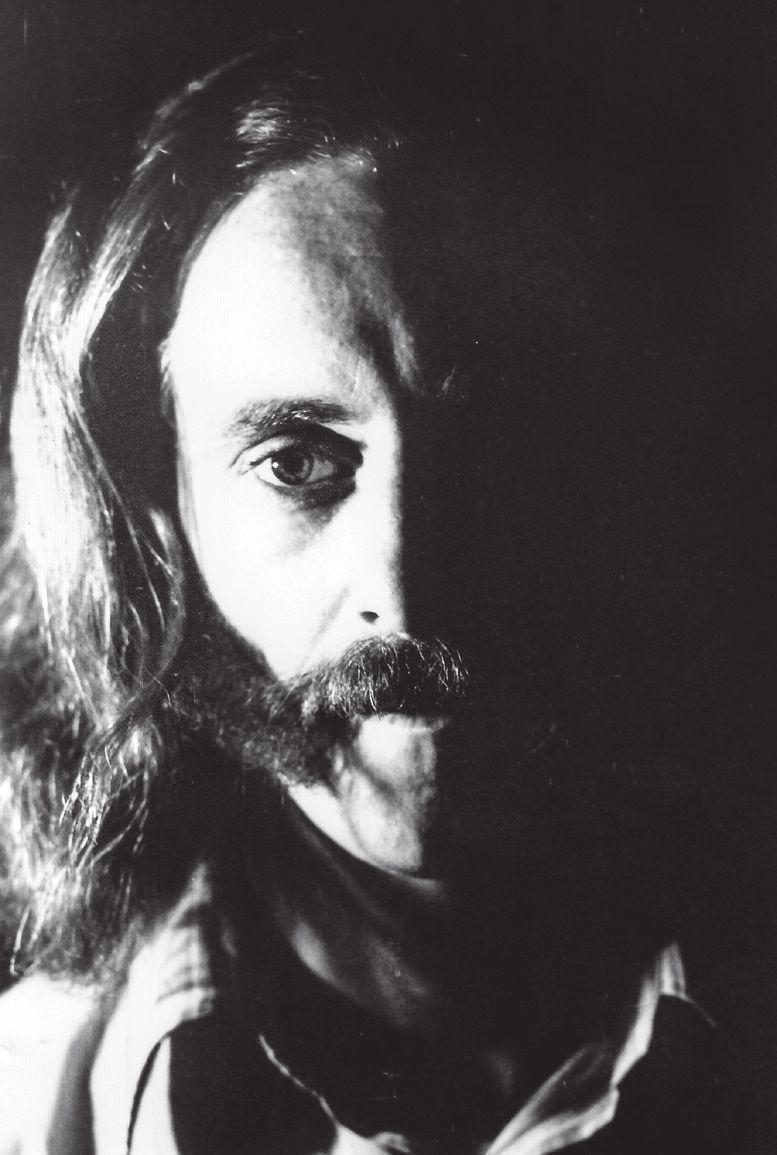
You stayed in the band until 1969. During that time you must have played a lot of clubs and were among the hip crowd in Victoria. Your previous band, Blues X Five opened for The Doors in 1967. Was there any particular gig from that time that you would like to highlight and tell more about it?
Reid Hudson: My mindset at the time was that all gigs were special and we were damned lucky to have a place to set up our gear and let loose. With Blues X Five, The Doors show was a great one, and with both Blues X Five and As Sheriff loved playing the coffee houses on 4th Ave in Vancouver at the time, lots of light shows and great bands to listen to and pull influences from. In Victoria, Nine in the Fifth Place on Government St was the scene of many memorable gigs.
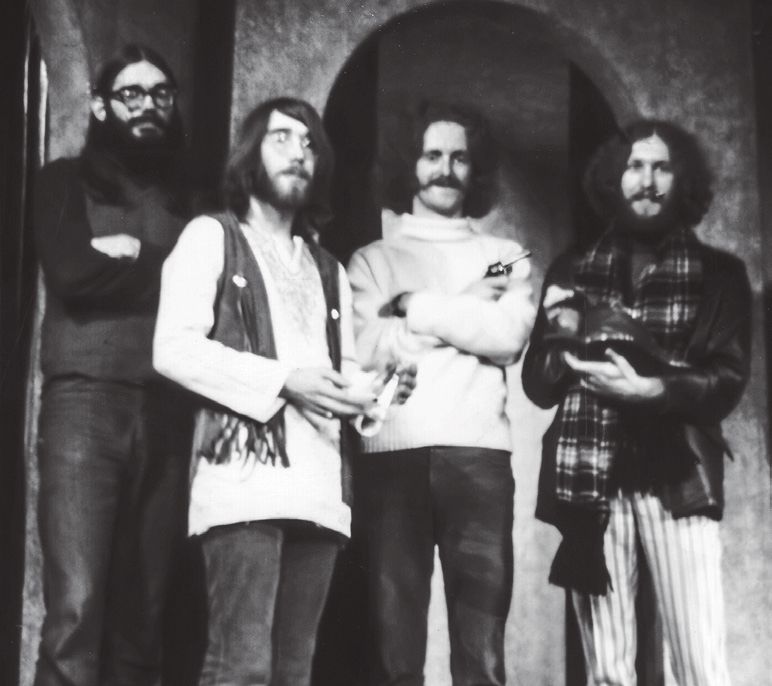
It took more than two decades for these unreleased recordings to finally see the light. The uncompromised dedication from Jason Flower is admirable. You must be excited to have this “document” in your hand today, as the only recording available was a single 45, ‘His Father’s Good Machine’ / ‘Six Ways to the Ace’? Would you mind to elaborate how the London Records deal came about and what do you remember from the two songs itself?
Andrew Godon: Unfortunately I remember very little about how the London Records deal came about. We probably had a booking agent at that time who might have been the one who connected us with Baroka Studio. I do remember writing ‘His Father’s Good Machine’ and ‘Six Ways to the Ace’. The lyrics were just sort of stream of consciousness around a chord progression; words that were evocative and strung together nicely. No real coherent theme, no machine, no Ace.
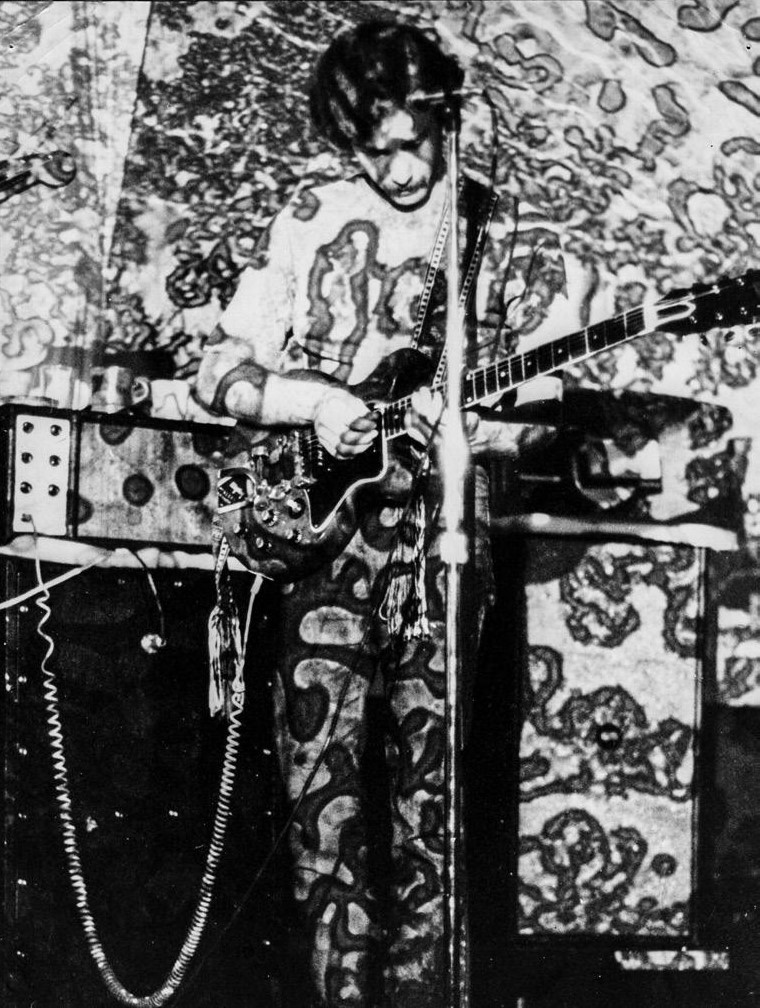
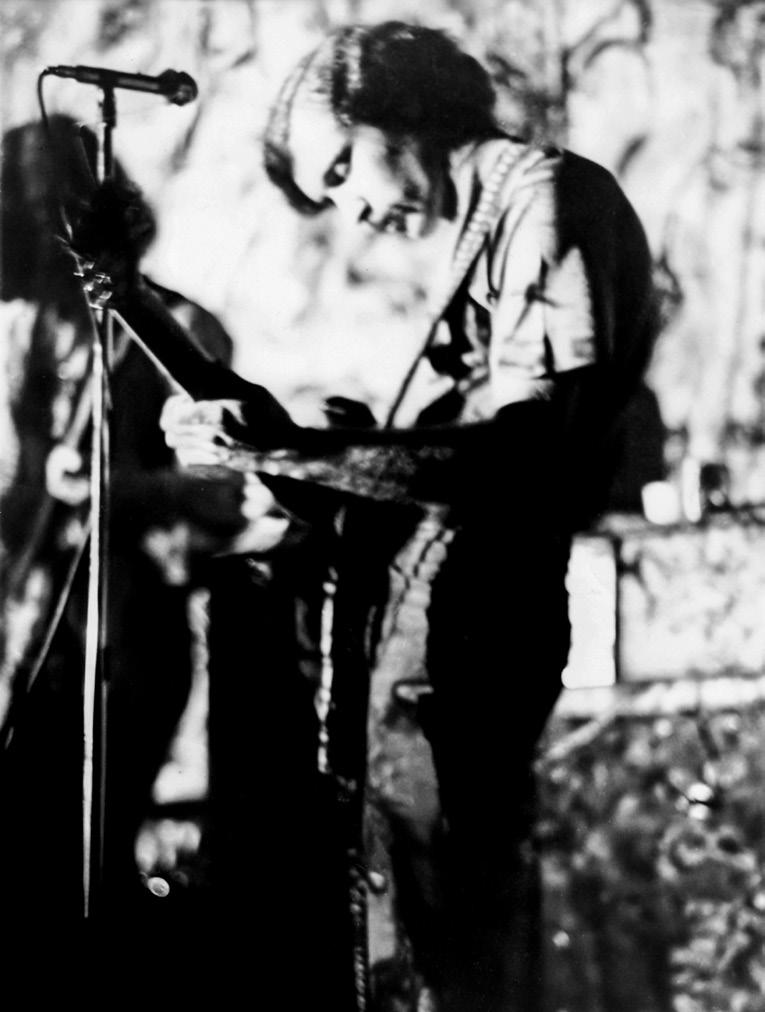
“It was an exciting time and there was a great flowering of creativity”
You are originally from Cupertino, California and were part of the very early scene when bands like The Grateful Dead and Jefferson Airplane were in early stages. What was the coffeehouse scene like in pre-hippie California and what led you to Victoria where you are still a resident of?
Andrew Godon: Actually, I grew up in Saratoga, a community adjacent to Cupertino. There were a few coffeehouses around the Bay Area where hootenannies were held every week and members of bands that became successful performed. When I was in high school a coffeehouse opened in Saratoga where local folkies played. I spent most of my free time there and did my first public playing there. Elsewhere around the south Bay Area, The Grateful Dead were morphing from a jug band to The Warlocks, then The Dead; Jefferson Airplane had discovered electric instruments and their own sound; Quicksilver Messenger Service were doing well. There was a fraternal element to the scene and musicians interacted with one another to a degree though, being a bunch of predominantly young men, there was still a healthy dose of competition. It was an exciting time and there was a great flowering of creativity.
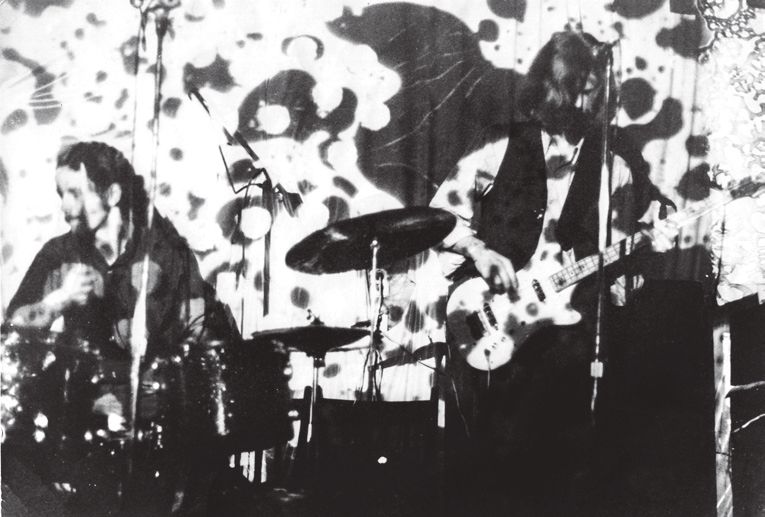
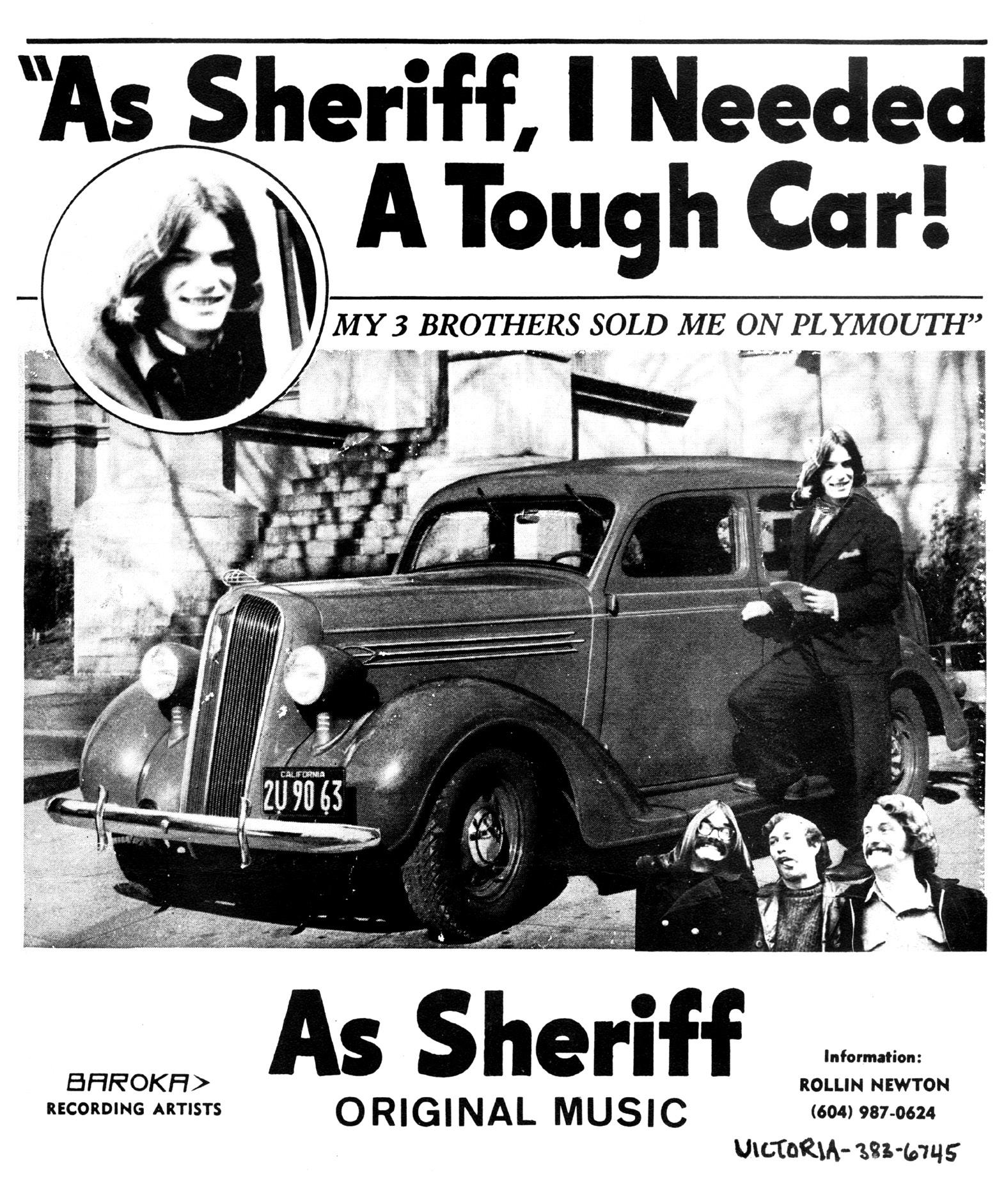
The impetus for leaving the US and moving to Canada was the Vietnam war and the draft board breathing down my neck. I was also fed up with much of US culture and its role in world events.
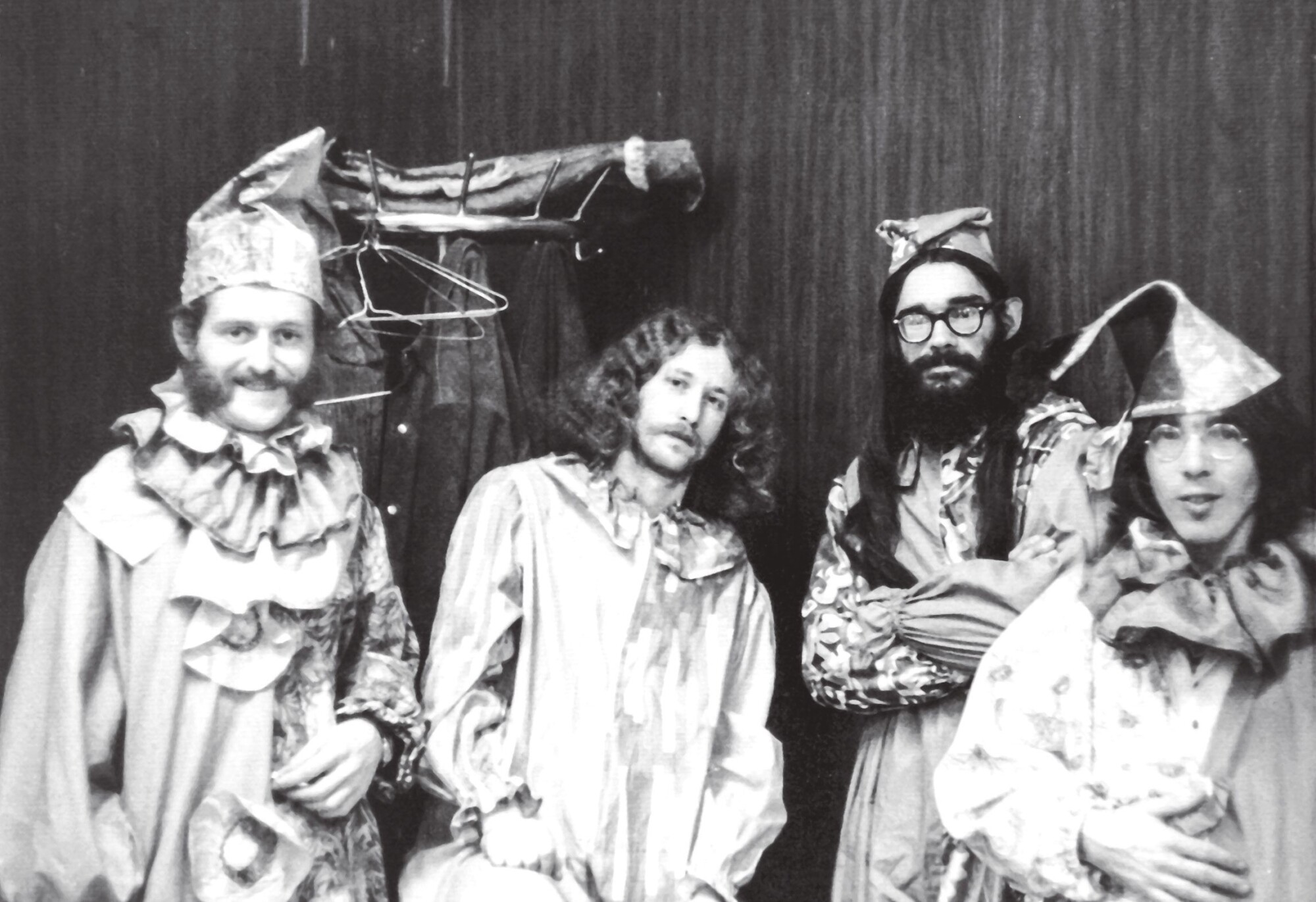
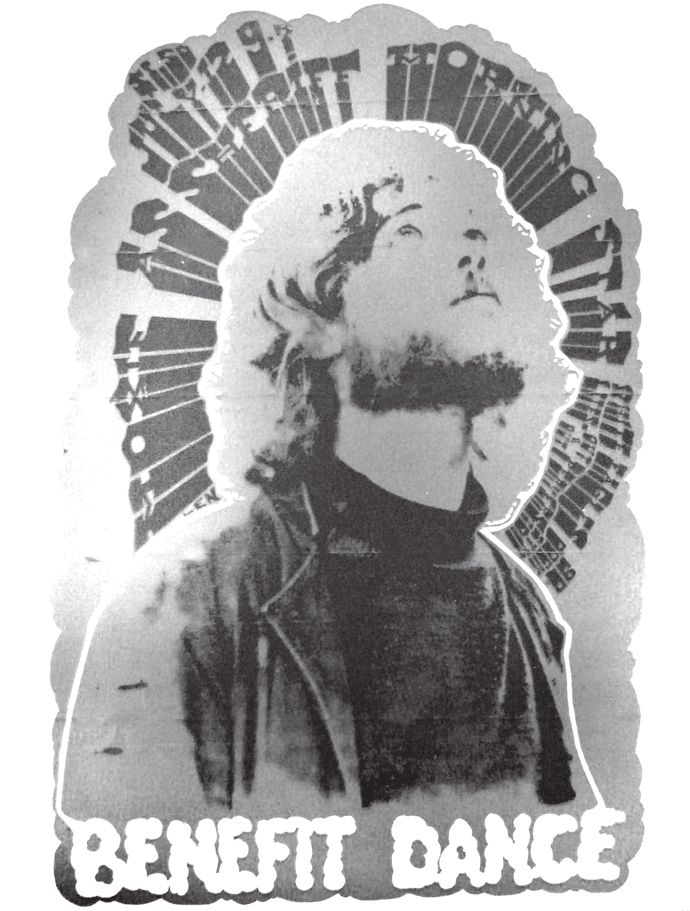
As a guitarist, what kind of equipment did you use? Tell us about the amps et cetera.
Andrew Godon: I played acoustic guitar initially. My dad traded his accordion to a music store for my first quality guitar, a US made Epiphone. I don’t remember what happened to that guitar. It was while living in Seattle after being kicked out of Canada that my friend/travelling companion/music partner sold his sax to get me an electric guitar. I had my heart set on a Fender Telecaster and found a nice one, probably pre-CBS. At around the same time I acquired a Gibson Firebird but didn’t use it much. I had yet to acquire an amp. When we arrived in Vancouver we hooked up with a guy who became a sort of band mentor and he cobbled together equipment for us. I used a setup we called the “horror horn,” a weird, jerry rigged, screamingly loud guitar amp. I was using the Telecaster at the time. Later I found a vintage Les Paul and used it for most of my time in As Sheriff, initially with a Rod Evans amp and fuzz tone. But my preferred amp was a Fender Twin though I liked to use a Super as well. The Rod Evans fuzz tone and a Crybaby wah wah pedal were the extent of my effects. Later I switched to Stratocasters that I mainly played through an old Fender Deluxe amp.
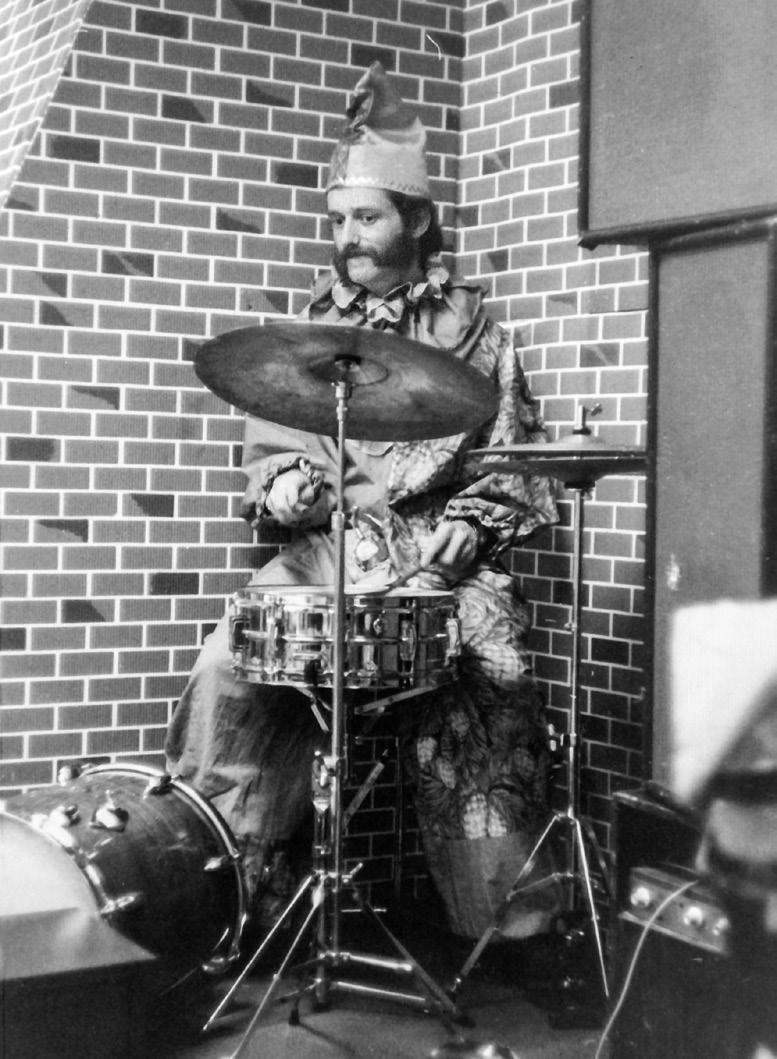
“During those years bands were trying everything to get ahead”
It must have been quite a surprise when hearing your own playing from decades ago? When did you originally join As Sheriff and would you tell us a bit about your background and how you became a guitarist?
Rod Evans: I was born in Wales UK in 1944 and came to Canada in 1953… We settled at Penhold air force base near Red Deer Alta. In 1960 we relocated to Victoria and I’m glad we did. When I was in grade 8 our school had a piano in the gymnasium, So after school I would plink and plunk away with my favorite book, Teaching Little Fingers to Play and it was great fun! My parents saw I was interested in music and gave me my first guitar, a Silvertone archtop guitar from the Sears catalogue. I loved it and I decided then and there guitars, electronics and music was my future! Years later I opened a music store called Sound Source and offered technical repairs and custom projects as well as instruments and speaker cabs and amp heads from 15 watts to 200 watts. This was when I was playing with As Sheriff. Around 1968 -70.
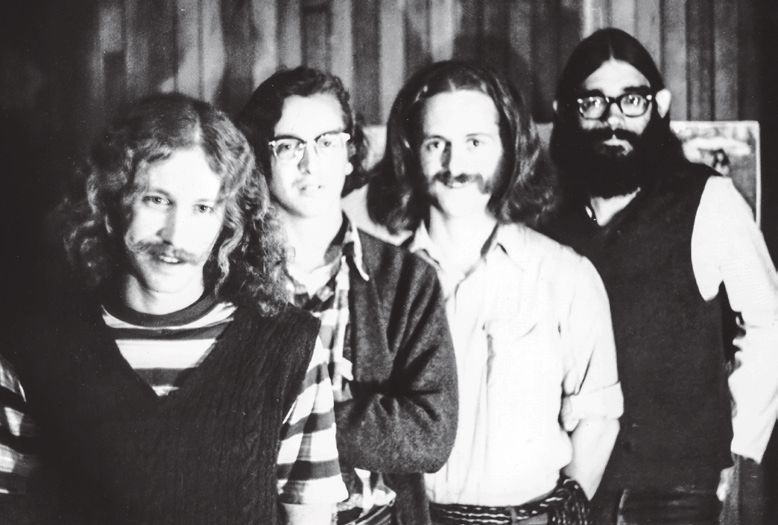
At fifteen you already modified your first guitar, a Fender MusicMaster by building and installing your first handmade pickup. Tell us about some of the most interesting projects you did back in the 60s when As Sheriff was still playing?
Rod Evans: My favorite projects at that time were a great distortion pedal and some 200 watt power amps for bass and PA work. Some say the pedal made you sound like Hendrix!

A lot of time has passed since the 60s and you did so much that we could fill a book. Do you feel that the local scene and the DIY attitude of the 60s inspired you to become who you are today?
Rod Evans: During those years bands were trying everything to get ahead when it came to their sound. Anything was fair game if it worked. So I had an advantage being immersed in DIY since junior high. Not everyone had the bucks to get that nice Fender or Marshall amp and opted for my custom units which worked great and could be serviced by the maker when necessary. “Murphy’s Law” was rampant and kept me busy as a bee, never a dull moment.
Klemen Breznikar
Supreme Echo Facebook / Instagram / Bigcartel / Bandcamp

